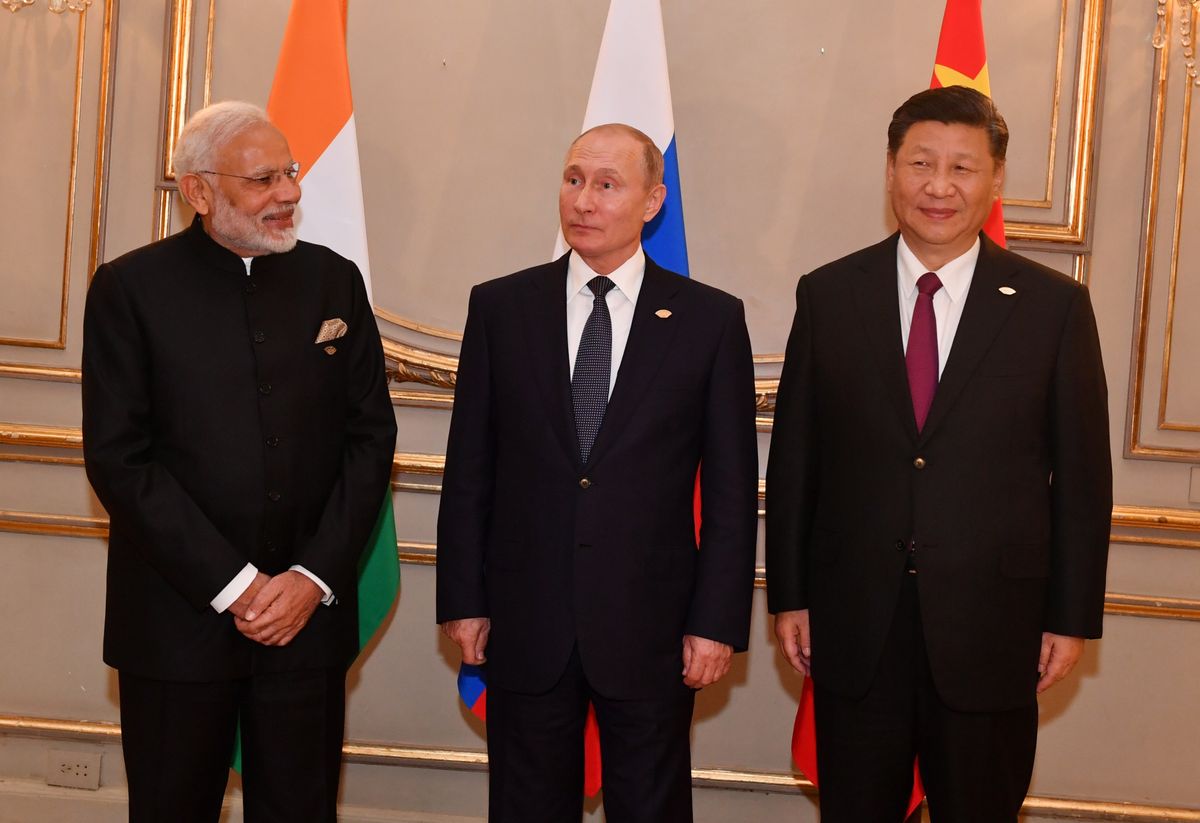Russia and China Strengthen Ties Amid Western Criticism

The Lede: The Prime Minister of Russia, Mikhail Mishustin, visited Beijing and signed a series of agreements with China on trade and sports cooperation. Amid criticism from the West due to the ongoing war in Ukraine, the prime minister portrayed the bilateral relations between the two world powers as reaching an unprecedented level of closeness.
What we know:
- Mishustin is the highest-ranking Russian official to visit Beijing since Moscow launched a full-scale invasion of Ukraine in February 2022. On his latest visit Mishustin, accompanied by top-level officials, including Deputy Prime Minister Alexander Novak, who is responsible for overseeing energy policy, held talks with Chinese Premier Li Qiang and President Xi Jinping.
- The two parties signed memorandums of understanding that covered several areas. These included an agreement to strengthen investment cooperation in trade services, a pact concerning the export of agricultural products to China, and another agreement focused on promoting collaboration in the realm of sports. Mishustin anticipates that the trade between Russia and China will reach an all-time high of $200 billion this year.
- The meeting comes days after the G-7 summit, which focused not only on Russia and its invasion of Ukraine, but touched on ways to deal with China, further deepening the geopolitical divide between the blocs. Heads of the G-7 nations once again expressed their commitment to providing additional assistance to Kyiv and challenged China's assertions in the South China Sea, vowed to counter economic pressure, and raised concerns about human rights violations. As G-7 talks drew fire from Moscow and Beijing, Mishustin set on strengthening trade ties.
The background: Russia and China started to enhance trade relations decades ago. But the ongoing war and the chain of sanctions from Western nations have hastened Russia's economic realignment toward Asia. Back in March, Russian Foreign Minister Sergey Lavrov said that Russia's energy trade will no longer be reliant on Western partners under the new energy policy. Instead, the emphasis will be on cultivating more dependable partnerships with countries like China and India – both have become the primary buyers of Russian crude oil amid sanctions and price cap imposed by G-7. Contrary to the projected 12% decline, Russia's economy experienced a milder contraction of only 2.1% in 2022. And the trend continues. In the past year, bilateral trade between Russia and China experienced a remarkable upswing, with a nearly 30% surge to reach an all-time high of $190 billion. The growth was predominantly attributed to China's increased procurement of Russian energy resources. The positive trajectory has persisted reaching a 41% surge in trade during the first four months of this year, the CNN reported. Apart from being its biggest energy customers, China is also Russia’s main supplier of technologies, including microchips.
Likely outcomes/Takeaway:
- The New York Times reported that the prevailing political narrative in China reflects a strong sympathy toward Russia and a widely held belief that China would be the next target of the West if President Putin were to face defeat. On the other end, Russia's pursuit of closer ties with China aligns with its strategic goal of reducing dependence on the West.
- Meanwhile, Sino-Russian alliance, which also includes efforts to shift away from the dollar, has spurred some geopolitical turbulence, further pushing the two powers to jointly respond to ongoing challenges.
- The sealing of economic pacts between Russia and China amidst Western criticism showcases the deepening economic ties between the two countries, the pursuit of alternative economic partnerships, and the geopolitical implications of their growing alliance.
